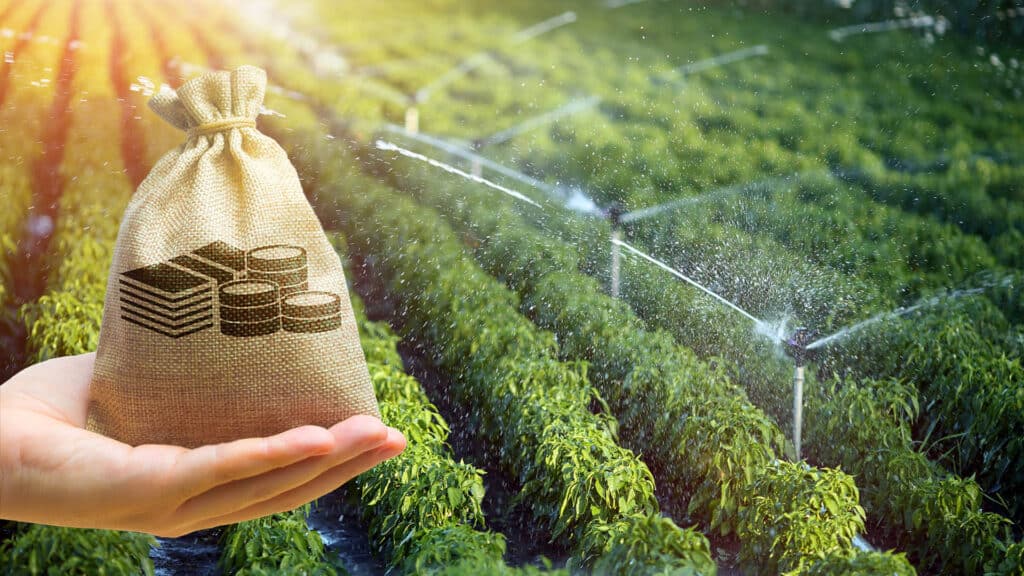Government relies on financial incentives to boost water conservation practices in Kazakhstan

The Ministry of Water Resources is going to promote water-saving technologies among Kazakhstani farmers with the help of financial incentives. Even though the country’s government already reimburses 50% of costs related to purchasing water-saving equipment, this year the amount of subsidizing will reach 80%.
According to Minister of Water Resources and Irrigation Nurzhan Nurzhigitov, about 16% of irrigated land in Kazakhstan is irrigated with the help of water-saving technologies.
«Water conservation technologies are used only in 312,200 hectares of irrigated lands out of 1.9 million hectares, which is unforgivingly small these days. Given the threat of less water in transborder rivers and huge losses of water in our irrigation canals, we have to do everything necessary to promote water-saving technologies among farmers,» he said during a cabinet meeting.
The Ministry of Water Resources in conjunction with the Ministry of Agriculture is now going to expand public incentives for new irrigation systems. Moreover, the government will subsidize up to 80% of the costs related to acquiring drop irrigation and rainwater irrigation systems.
«As a result, the total amount of land covered with water conservation technologies will increase to 1.3 million hectares by 2030. This measure will let us save about 2.1 cubic kilometers of water and double the yield of agricultural products,» Nurzhigitov highlighted.
In turn, Prime Minister Alikhan Smailov said that it is very important to manufacture these water-saving solutions in Kazakhstan.
«Despite all our efforts, water-saving systems aren’t widespread in the country. For instance, drop irrigation is used on 84,000 hectares out of the planned 312,000. Given that these technological solutions are quite expensive, we must produce this equipment on our own. Some projects are already in the negotiation phase. It is very important to implement them,» the prime minister said.
The context. The deficit of water is a real problem for Kazakhstan and it’s getting worse, according to the Ministry of Ecology.
To cope with the drought this year, the Ministry of Water Resources and Irrigation has come up with a plan. Thus, Tajikistan, Turkmenistan and Uzbekistan have agreed to divert 11.1 cubic kilometers of water from the transborder rivers of Syr Darya and Amu Darya to the Shardara reservoir. This measure will let Kazakhstan accumulate enough water for the Turkestan and Kyzylorda regions during irrigation season.
What problems does Kazakhstan have with water:
In August 2023, six districts of the Jambyl region declared a state of emergency due to a severe deficit of water. At the time, many farmers reported harvest loss which in turn caused significant financial losses. According to the government, the drought toll was more than $6.6 million;
Southern regions of Kazakhstan heavily rely on water from neighboring Kyrgyzstan. In the Jambyl region, for example, water from Kyrgyzstan accounts for 80% of irrigation water in the region. At the same time, Kyrgyzstan also reported a deficit of irrigation water last year;
In June, Speaker of the Senate (the upper house of Kazakhstan’s parliament) Maulen Ashimbayev said that the decrement of water resources is one of the biggest problems in the country. Given the growing needs of the country’s economy and population growth, the consumption of water is expected to grow by 1.5 times within the next 20 years;
According to Ashimbayev, the amount of water Kazakhstan can rely on from transborder rivers has been decreasing every year. At the same time, agriculture consumes about 50% of this water;
In June 2023, President Kassym-Jomart Tokayev said that Central Asian countries would experience a two-degree increase in temperature, leading to a deficit of drinking water and further desertification;
Tokayev expects that droughts and floods in Central Asia can cause damage of 1.3% of GDP per year, while agricultural product yields would drop by 30%. All these can cause the emergence of five million climate migrants in the region by 2050;
According to the president of Kazakhstan, water storage in the rivers of Syr Darya and Amy Darya will decrease by 15% within the next 30 years.

